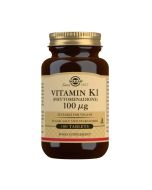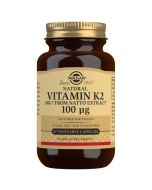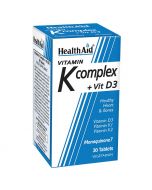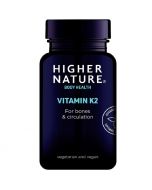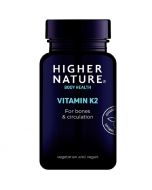
How Vitamin K2 May Fight Cancer, Prevent Osteoporosis & Other Diseases
By Neesha Desai, Pharmacist (GPhC 2071387)
You’ve heard of vitamin K, but what you might not know is that there are actually different varieties of vitamin K. One of them, Vitamin K2 has becoming increasingly of interest to nutritionists and those keen to create better, more balanced diets for us. In fact, research and studies have been finding some amazing and useful new ways in which vitamin K2 can be used to improve your health now and in the future. Let’s take a look at those findings and what they might mean for you.
What Is Vitamin K2?
Vitamin K2 is one of three types of vitamin K, though you are only likely to come across two of the three in your daily life. The types are:
- Vitamin K1 aka phylloquinone
- Vitamin K2 aka menaquinone
- Vitamin K3 aka menadione
Most research and recommendations for Vitamin K are focused on Vitamin K1, though that might not always be clear. However, we’ve actually been developing our understanding, over the last 20 years, into the unique properties of K2 and K3.
Note: K2 Is Also The name For A Synthetic Form Of Marajuana
In this article, when referring to K2, we are referring only to vitamin K2 and not the name of a synthetic form of marajuana that has been developed. These two aren’t related but if you are searching for more information on vitamin K2 then it’s good to be aware of this.
Vitamin K2 Foods

Vitamin K2 is found in animal products and fermented foods. Vitamin K1, by comparison, is found in plant foods, specifically leafy greens. Vitamin K3 doesn’t naturally occur as it is a synthetic strain and is most commonly used as a supplement for animals, such as livestock.
Like the types of vitamin K, there are also variants within vitamin K2, designated with MK and a number, and there variants are found in certain foods more than others. For example, The Journal of Nutrition says that menaquinone’s (K2) MK-4 form is present in meat and eggs, while MK-5 to MK-10 variants are found in ‘fish, sauerkraut, cheese, and other dairy produce’. This is useful to know if you are looking to really work at refining your nutritional needs, and for those researching how K variants can be used.
Interestingly, and this is where our first look at the potential that development of vitamins and their uses comes into play, vitamin K3 is being used in combination with vitamin C to help fight prostate cancer. This hasn’t been proven but there is research being conducted which should make us all hopeful. But what about K2?
What Vitamin K2 Can Do (& Might Help With)
Vitamin K is known ‘for blood clotting, which means it helps wounds heal properly.’ Vitamin K1 and K2 both play a part in supporting not only coagulation but also bone health, with K2 potentially having a vital role to play in maintaining bones throughout the body. Researchers have taken these initial findings and taken them further to see what potential K2 might have.
Bone Formation & Breakage Repair Requires Vitamin K2

Vitamin K is one of the key vitamins needed to grow bones. Since bone is metabolically active tissue, it renews over the course of our lives, so as we grow up, we grow and renew our bones too. Some of the latest research into vitamin K has proved it has ‘a positive impact on the bone metabolism’ and this is vitally important when we break bones.
The way a bone reforms, after a break, is that blood clots in the area and then the blood calcifies into bone. This uses a huge amount of energy. Vitamin K2 is essential when you break bones (along with protein supplements) because it will encourage the blood to clot well and then for the bone to start healing/forming. Without a good supply of vitamin K2, children won’t be able to grow bones, we won’t heal from breaks and bones with deteriorate.
Vitamin K Supplements Can Improve Heart & Bone Health

In a 2017 study, Vitamins K1 and K2: The Emerging Group of Vitamins Required for Human Health, it was observed that vitamin K2 made an overall improvement in heart and bone health within subjects in a controlled environment. Vitamin K1 however didn’t have any notable benefits.
While the study did make it clear that more human trials were needed to make any firm claims, the findings were encouraging. Learning where vitamin K can be applied to improve our health is valuable information that may hold the key to dealing with a great number of diseases – which we also explore further below.
Vitamin K2 Could Support Bones During Osteoporosis Treatment
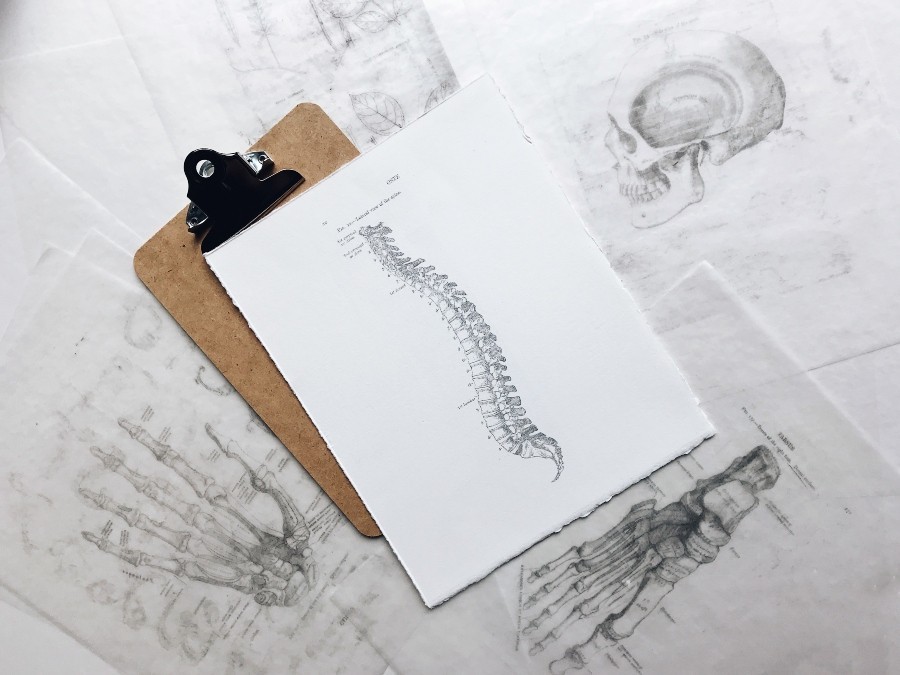
In a study on vitamin K2 and bone quality in the treatment of osteoporosis, K2 was noted as ‘having a supportive effect on bone quality during osteoporosis treatment’. Since vitamin K2 has been strongly linked with bone health and with osteoporosis being a condition that weakens them, it is no surprise that strategic applications of the vitamin could benefit those undergoing treatment.
There are lots of ways to prevent osteoporosis and there will still be those who have to deal with the condition, for the foreseeable, even if we are able to prevent a rise in the number of cases. This research may give hope to a lot of older people who are most at risk of dealing with brittle bones and the consequences of dealing with it.
Immune & Neurological Diseases Could Be Combated With Vitamin K2

Since there is a lot more research around vitamin K1 than K2, many studies focus on the differences between the two in the body. A study from 2019, Vitamin K: Double Bonds beyond Coagulation offered insights in how each of the three types of vitamin K are used in the body, how much of each is viable and how specifically they have been found to deal with diseases.
It noted that in a similar way to how vitamin K1 has been clearly linked to blood clotting, vitamin K2 was known to be associated with bone conditions. However, it went further with K2, saying that since vitamin K2 stays in our systems longer than K1, it is better distributed around the body. As a result, a number of studies have discovered that while K1 did not improve immune systems or diseases like chronic kidney disease, vitamin K2 did.
In some cases, such as with neurological diseases, this link was made as ‘K2 levels were greatly reduced in patients with MS’ opening up the hypothesis that treatment using K2 might alleviate symptoms. Further research is needed but the initial findings that are laid out are intriguing.
Vitamin K2 May Have Anticancer Effects

According to Macmillan Cancer Support, an estimated 2.5 million people in the UK were living with cancer in 2015, with the number expected to rise. Cancer is hugely prevent and a condition that most people have either dealt with or know someone that has. Finding a way (or ways) to combat the various types of cancer would change a huge number of lives. Vitamin K2 might be one way.
A study published in 2018 says that ‘reports have highlighted the utility of VK2 as a potential antitumor agent’. What this means is that vitamin K2 has been found to reduce the size and number of cancer cells, helped by the way in which vitamin K reacts with the body. If vitamin K2 could be utilised as an antitumor agent, it would enable even better treatment for cancer and prevention for the development of cancer. Again, more trials are needed, including more human trials, but, as the published study puts it: ‘Clinical trials demonstrated that VK2 has the potential to improve the prognosis of patients with cancer...and the dietary intake of VK2 can decrease the risk of developing cancer’.
Know More About Vitamins To Keep Yourself Healthy
As the articles above show, there is a lot more to know about vitamins and how they work with our bodies. Vitamin K2 is just one type of one vitamin, there are many more and minerals too, all of which play specific and valuable roles in our bodies. Many of them we understand well, some we don’t. But staying informed and keeping yourself in the know is the best way to manage your health and ensure you feel happy and strong throughout your life.
To help you keep learning, below are some more recommended reads to let you get to know your nutrients better.
Disclaimer
The products offered are not intended to diagnose, treat, cure, or prevent any illness or disease, or replace the advice of a medical professional. Results are not guaranteed and may vary from individual to individual.

